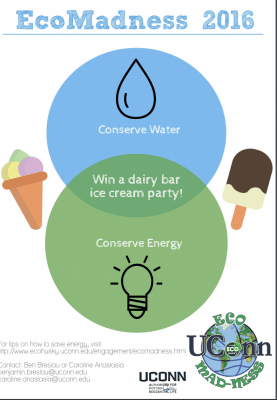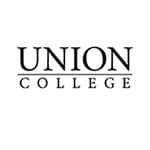My proposal for the Green Grant would be to give each first-year a reusable grocery bag. The overall goal of this change would be to reduce the number of disposable plastic bags that are used on campus. This reusable bag would be given to first-year students at orientation, much like the reusable water bottles that were given to my class. These bags’ purpose would be for food and bookstore items. Any students buying snacks, getting upper to go or grabbing a salad from O3, can use the reusable grocery bag. Also, I believe that incentivizing this usage by offering a 3% discount on all bookstore food purchases for students who bring the reusable bag would help encourage the success of the program. Students would save declining, and the planet in the process. If the average size of the new freshman class is about 510 students (rough estimate), then it would cost Union about $0.95 per bag, with a total cost of $484.50. Now, one order of the biodegradable plastic bags that Union currently uses in the bookstore (1000 bags per order), costs $90.29. If the bookstore saw just a 10% decrease in demand for plastic bags per term, that would mean a 30% decrease per academic year; which is significant. Then the college can order fewer plastic bags (ergo spend less money on plastic bags each term), and reduce our waste in a cost-efficient way. The Green Fee Grant is a perfect way to fund this effort and can totally be reasonably implemented next fall.
Monthly Archives: October 2018
Green Grant
For My Green Grant proposal, I suggest that Union hold a competition to see which residential building can use the least energy and water per capita over a given month and reward the residents of winning building with an addition to their declining balance. A similar competition is run at the University of Connecticut called EcoMadness. Prizes are rewarded to the building with the lowest per capita water usage, the lowest per capita energy usage, and the greatest percentage reduction in both energy and water usage.
As a result of EcoMadness 2016, the winning residential building at the University of Connecticut for lowest per capita water usage decreased their water usage by 20% in one month. The winning residential building for the lowest per capita energy usage decreased their energy consumption by 32% in one month. If the Green Grant were to be used to hold a competition at Union and yield similar results, that would be an enormous decrease in energy and water usage in just one month.
Climate control
For my Green Fee proposal, I would use the 25,000 dollars allocated to the project to reform the Union College heating and cooling systems that are used in numerous building especially Bailey Hall on campus. The system currently analyzes too many classrooms grouped together to turn on heat or air conditioning based on what temperature conditions are currently at. This system often turns on heat or air conditioning in classrooms not being utilized because they are adjacent to ones being used which causes an overuse of energy to power the systems to heat or cool the given space. With the added money, one would be able to increase the number of sensors so that it could be as close to room to room analyzation as possible. That way if one class is in session next to an empty room and has the windows open altering the temperature of the building and rooms adjacent to it the system will not kick on to try to fix and average the temperature of all of them, instead just the singular one which is in use. As we know not all classrooms are used at the same times and different professors and classrooms call for different temperatures to teach and participate in. If this could be put into action it would allow more individuality to the campus classrooms for heating and cooling saving the cost and process that revolves around it. It is not an inexpensive process nor environmentally friendly process to use air conditioning and heating mechanisms. This could cut down the overall energy allocated through the power system of Union College reducing the energy that is taken which is necessary to power them.
Reusable Coffee Cups in Wold
Every morning, students rush to Starbucks in Wold to get some coffee before their first class. The line is always enormous, stretching all the way down the hall. Sometimes, students purchase multiple cups of coffee a day to get their daily dosage of caffeine. The amount of paper and plastic cups that Starbucks uses on our campus a day creates a tremendous amount of excess waste.
Therefore, to combat this impractical waste issue, I would use the Green Grant to create reusable cups for Starbucks. There will be cups for hot and cold beverages. With the purchase of a cup (approximately 5-10 dollars), the amount of plastic and paper waste per day would be drastically decreased. To incentivize this, students who use their reusable coffee cups should receive some type of discount on their coffee. I think this idea is a quick, and cheap way to limit waste on campus.
Sustainable…Pavement?
As I was pulling out of the Nott/Seward parking lot earlier this week, I noticed that the pavement was extremely uneven. As usual, I simply thought to myself that they needed to repave the lot. Well, with this week’s blog theme in mind a thought occurred to me: What if Union repaved the lot with a more sustainable method?
Many ideas have come and gone, and an expert I claim not to be, but perhaps we could go even further than simply using more sustainable concrete alternatives. Working with the sustainability coordinators and other departments on campus, I am curious to see what types of solar or thermal energy could be produced through pavement materials.
Along with economic factors, I could see this being cost effective for Union long-term, especially if proposed as a Green Free or Presidential Green Grant to cover short-term fees. I could not find any material as to the actual cost or probability of any of the previously discussed methods, but I’m curious to see if this would be a possibility.
Green Grant: Solar Tables
In order to make Union more sustainable, I propose that Union install solar tables behind Reamer Campus Center. These tables would have electrical outputs to charge phones or laptops and are perfect for the students that are sick of studying inside on a nice day. Creating these solar tables may also provide data to prove to Union how much money could be saved by installing solar panels on some of the buildings that receive constant sunlight.
Green Grant
For my green grant, I propose that the dining halls get rid of the trays used to carry food. Eliminating trays from the dining halls would lower energy and water use. At Union, the trays are not used by all the students, but more so to bring the dirty plates, cups, and utensils into the dish room. If we eliminated the trays from this process and just had a rotating conveyer belt system, then less water would be used cleaning the trays. Additionally, there would also be fewer plates to clean. This experiment was done at Georgia Tech and for the 18,000 student body, they save 3,000 gallons of water each day. Additionally, when students do not have trays to carry their food, they can only take what they can hold reducing the overall food waste. Another study was done in New York that showed that without trays the school saved a total of 25 pounds of waste each meal. This is because students have less space to carry the food to their area so they can take only what they need. At RIT, last summer they removed trays and they saw less food waste and the school saved 10% of food spending. Overall, taking away trays and finding a new system for Union students to transport their waste to the dish room would have several benefits.
Presidential Green Grant Proposal: Reusable Straws
In order to reduce our school’s carbon footprint, Union should stop providing students with plastic straws and opt for more sustainable ones instead. Recently, several states and cities have made strict laws surrounding the use of plastic straws because of their harmful impact on the environment and Starbucks has promised that they will stop using straws all together by 2020. Between Dutch, Starbucks, and the dining halls on campus, students are constantly using plastic straws. Instead of plastic straws, Union should switch to paper ones in all dining locations. Additionally, they should provide each incoming student with either a metal or glass reusable straw. Metal straws cost around $1/straw when bought in bulk, so for an incoming class of 550 students, the school could spend ~$550 and become an even more sustainable campus.
Green Fee proposal idea
I think a very feasible and impactful change Union College can make to increase our sustainability is to increase the amount of compost collection sites and by providing more recycling bins. Currently, there are only compost bins in the dining halls. However, students and faculty eat and use compostable items all around campus everyday. I think that the college community would use more composting bins if there were more available, for example, in the library and in academic buildings such as Karp or Olin. Often times we throw things in the landfill garbage bins simply because there are no other bins available. By making composting and recycling more accessible, we could cut down our waste and become a more sustainable campus.
Presidential Green Grant Proposal
Lately the topic of excess garbage, including food waste, has been a hot topic in the news because the destructive effects of excess waste are starting to affect health and safety of people. Excess waste has always been affecting our health and safety but until now the effects have not been so obvious. Excess waste causes air pollution, respiratory diseases, contamination of surface and ground waters and increased bacteria, insects and vermin urban centers. To help alleviate some of the stress on our environment caused by excess waste, I propose that each first year student receives a custom Union Tupperware container. This way the students can use the containers in Reamer for various food options; Rathskeller takeout; and in the dining halls so as to reduce the amount of to-go cups used as makeshift takeout containers. A typical square generic “Tupperware” container costs ~$1.00 so for an incoming class of ~700 students this would call for a grant of ~$750 for custom Tupperware containers. The waste we would be avoiding if this grant were to be granted would far out-cost the cost of the containers. Perhaps dining services could have some kind of program or contest once a term that incorporates the containers and when they hold their “pop-up” events, students should only be served if they have their reusable containers. Perhaps this would also encourage students to purchase more reusable containers and use less one-use containers!


